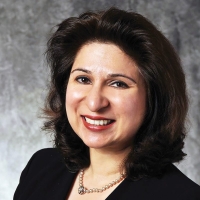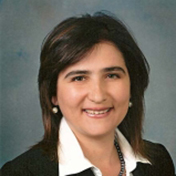I am planning to gift $550,000 to my brother for the EB5 program through a regional center. Neither he nor I is an accredited investor or an entrepreneur. His income is very low in his current employment but his education is good (graduate degrees). He is outside USA. How much more money will we need to show in his account (besides the 500K + all management/legal fees etc.) for proof that he can sustain himself once he gets into the United States? I can”t transfer more than 600K in his account as this the maximum I can afford (with loans etc.).
Also, I have searched online for clarifications on securities law requirements for accredited vs non-accredited investors in a regional center program and the information is not clear and sometimes conflicting. Some claim that under regulation D 506 exemption, the issuer can get up to 35 non-accredited investors. But I haven’t seen that from other “experts”/sites/professionals. Some even told me that this is not a strictly checked criteria and advised me to just answer yes on the questionnaire from the center that asks if the investor is an accredited investor and it will go through. Obviously I am not comfortable with that as the consequences of misinformation are not good. Even on the I-526 petition there is a question of net worth (before and after making the investment) and I don”t want to put the wrong information on the immigration forms.
So I want to get clarification on whether regional centers or the program can take non-accredited investors officially without relying on deception or the chance that you won”t be found.
Answers

Clem Turner
EB-5 Securities AttorneysThis is a great question. I applaud your willingness to do the right thing. Under Regulation D a regional center issuer is "allowed" to have 35 non-accredited investors, however there are considerable negative consequences for the regional center if they do. If they accept just a single non accredited investor they will have to comply with several disclose requirements that are similar to publicly traded companies. This will cost the regional center great time and expense to put together. So, as a practical matter, most regional centers will not accept any unaccredited investors. With that said, Regulation S is another exemption that the regional center can rely on. Regulation S does not have an accredited investor requirement. We counsel our regional center clients to take advantage of the double protection that complying with two exemptions provides. However, it is possible that you might find a regional center willing to rely solely on Regulation S. If you would like further information, feel free to contact me offline.

Mona Shah
EB-5 Immigration attorneysThe answer is Yes. According to Reg D exemption, issuers can have up to 35 unaccredited investors. But the JOBS Act may change that. If a regional center would like to utilize general solicitation and general advisement, all investors must be accredited and the RC must take reasonable steps to verify they are accredited. Since the SEC proposed rules for JOBS Act is still on hold. The old rules are in place. So Yes. Unaccredited investors can invest.

Julia Roussinova
EB-5 Immigration attorneysUSCIS does not require that an EB-5 investor be an accredited investor to qualify for an EB-5 visa. This is rather the US securities law requirement. Under the current US securities laws, a company or regional center that offers or sells its securities must register the securities with the US Securities and Exchange Commission or find an exemption from the registration requirements. Limited partnership interest or limited liability company interest offered to EB-5 investors are also within the meaning of "securities." Under the current US securities laws, companies are given a number of exemptions from the registration requirements. To that end, any approved regional center or other securities issuer, such as a lawful business entity offering a business interest for sale, may use an exemption to offer an EB-5 investor an equity interest. Common exemptions are under Securities Regulation D or Regulation S. Under Regulation D, an EB-5 investor must be an accredited investor. In this case, an investor must meet either one of the following requirements: (1) have an individual net worth (or joint net worth with a spouse (if any)) of more than $1million at the time he purchases an interest less the value of his primary residence (i.e. his main home), or (2) have an annual individual income of more than $200,000 (or annual joint income with a spouse of more than $300,000) in each of the preceding 2 years and a reasonable expectation of the same level of individual or joint income in the current year. Under Regulation S, the offer/sale generally must occur in an offshore transaction and no direct selling efforts have been made in the US. Questions about income and net worth in Form I-526 do not relate to an EB-5 investor; they relate to income of the enterprise and a 40% expansion in the net worth of the enterprise to show a qualifying capital investment in an existing business. You must also demonstrate the lawful source of funds for the gift and that any applicable gift taxes have been paid or are not required to be paid in accordance with your country''s tax laws. Do not hesitate to contact our office, should you have further questions.

Philip H Teplen
EB-5 Immigration attorneysI would never answer a question dishonestly. However, this criteria is not the most critical generally. It is very dependent upon the individual Regional Center Program. further, if you are gifting money to your brother, it is critical that you are able to prove that your funds were obtained lawfully and the gift is either not subject to a gift tax or that the gift tax was properly filed and paid. i will be happy to discuss in more detail.

Steven Anapoell
EB-5 Securities AttorneysYes, if the investor is offshore, the issuer can use the Reg S exemption from registration. If Reg D will be relied on instead, most offerings are restricted to accredited investors.

Ed Beshara
EB-5 Immigration attorneysTo participate in an EB-5 Regional Center project , the investor needs to be an accredited investor. Even the investor in receipt of gifted funds will still need to be an accredited investor.

Sufen Hilf
EB-5 Immigration attorneysWhether you, a foreign investor, are credited or no credited Investor is not an issue to I 526 petition or immigrant visa application.

Private: Samuel Arthur Sue
EB-5 Immigration attorneys*NON-ACCREDITED INVESTOR ISSUE . *Yes, a non-accredited investor can participate in EB5, with limitations. Accredited/non-accredited are terms that regulate sale of "securities" in the U.S., meaning sale of stock shares, units in limited liability companies, term notes, and other financial instruments. All securities sold by a Regional Center will be governed under the Securities and Exchange Act and other regulations. Those regulations generally require all companies offering and/or selling securities to register, which is a long and tedious process. Exceptions for registration apply if all purchasers (except 35) are "accredited investors." There are other exceptions as well, - some of which require the non-accredited investor to be sophisticated and experienced in purchase of securities. Your brother may not fall into the "sophisticated" category. This make me believe the Regional Center you are looking at is relying on the exception that allows 35 purchasers to be non-accredited investors. The exception is under Rule 505, and funds raised are limited to US$5M in any 12-month period. Further, no purchase may be for re-sale, so your brother would be required to hold the security for at least two (2) years. There are several other exceptions to the registration requirements, - which explains the conflicting information that you can find online. Differing requirements for the differing exceptions to the registration requirements. *CAPITALIZATION ISSUE .* As far as having a bank account of further funds - he needs to show that he can support himself and his family. He is allowed to work in the U.S. once he gets the green card - so the amount of funds required may not be more than US$70K in the account, or so, enough to provide for living until he arrives in the U.S. and can begin to work. This answer presumes that he is investing with a Regional Center who will be responsible to on-going operating costs of the investment. *SOURCE OF FUNDS ISSUE .* USCIS will be very interested in the source of funds. If you are gifting him the funds, you will be required to show tax returns confirming legal sources of the funds. This issue can never be overlooked. Trust its helpful. Feel free to contact as needed.

Stephen Berman
EB-5 Immigration attorneysAnyone can invest money, you do not need any accreditation to invest and apply to immigrate as an immigrant investor.

Lei Jiang
EB-5 Immigration attorneysYou should answer the question truthfully. Also, you should ask the regional center if your brother will be qualified for its program.

Margo Chernysheva
EB-5 Immigration attorneysAs you mentioned, this is a complex area. It is possible for you to gift the money and your brother to apply for and receive a successful approval for his EB5 visa, but I would suggest you hire an experienced immigration attorney to assist you in the process so you do not make any mistakes.

Jor Law
Creating EB-5 Regional CentersThey can, depending on the circumstances. The basic rule for securities offerings typically is that offerings must be registered. Registration is expensive and takes time, so most people rely upon an exemption. Some of the available exemptions, but not all, require that the investor be accredited. Therefore, if an offering was relying on an exemption that did not require accredited investors, the investor would not need to be accredited. Even though some exemptions allow for a certain number of non-accredited investors, in practice most issuers avoid having non-accredited investors as it may subject the issuer to increased disclosure obligations required by law. There may be other reasons as well, such as, opting to deal with investors that can better afford to lose an investment.

Jinhee Wilde
EB-5 Immigration attorneysThe exception to be non-accredited investor under EB-5 program is to have income of $200,000 for the past 3 years or have the assets of $1 million. While your brother may not be able to qualify himself, since you are gifting him the money, you need to show that you have the financial ability to be able to give him that gift. Thus, we will need documentation from you having earned $200,000 for the past 3 years or has assets of $1 million or more through business, real estate, bank accounts, stocks, etc.

Kate Kalmykov
EB-5 Immigration attorneysTwo different issues are presented here. Questions regarding accreditation are better answered by a securities attorney. Separately, the investor must show that in order to remain in the U.S. that he will not be a "public charge" this can be demonstrated by showing that he meets the minimum income requirements for a family of a certain size in accordance with the federal poverty guidelines.

Neville M Leslie
EB-5 Immigration attorneysHe needs to have a worth of approximately $1M total.
DISCLAIMER: the information found on this website is intended to be general information; it is not legal or financial advice. Specific legal or financial advice can only be given by a licensed professional with full knowledge of all the facts and circumstances of your particular situation. You should seek consultation with legal, immigration, and financial experts prior to participating in the EB-5 program. Posting a question on this website does not create an attorney-client relationship. All questions you post will be available to the public: do not include confidential information in your question.






